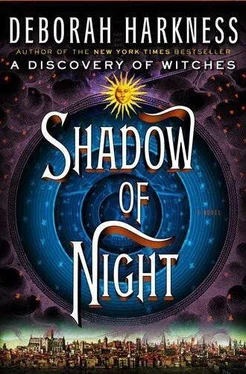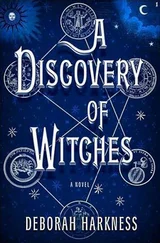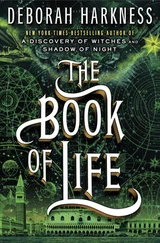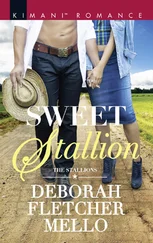I was resolved to speak English only out of necessity, and even then just to Matthew, his father, Alain, and Pierre. As a result my conversation with Chef and his associates was full of misunderstandings. Fortunately, Alain and Pierre gently untangled the knots when my French and their heavily accented Occitan mingled. Once I had been a decent mimic. It was time to resurrect those talents, and I listened carefully to the dips and sways of the local tongue. I’d already put several language dictionaries on the shopping list for the next time someone went to the nearby city of Lyon.
Chef warmed to me after I complimented his baking skills, praised the order of the kitchens, and requested that he tell me immediately if he needed anything at all to work his culinary magic. Our good relationship was assured, however, when I inquired into Matthew’s favorite food and drink. Chef became animated, waving his sticky hands in the air and speaking a mile a minute about milord ’s skeletal condition, which he blamed entirely on the English and their poor regard for the arts of the kitchen.
“Have I not sent Charles to see to his needs?” Chef demanded in rapid Occitan, picking up his dough and slamming it down. Pierre murmured the translation as quickly as he could. “I lost my best assistant, and it is nothing to the English! Milord has a delicate stomach, and he must be tempted to eat or he begins to waste away.”
I apologized on behalf of England and asked how he and I might ensure Matthew’s return to health, although the thought of my husband being any more robust was alarming. “He enjoys uncooked fish, does he not, as well as venison?”
“ Milord needs blood. And he will not take it unless it is prepared just so.”
Chef led me to the game room, where the carcasses of several beasts were suspended over silver troughs to catch the blood falling from their severed necks.
“Only silver, glass, or pottery should be used to collect blood for milord , or he refuses it,” Chef instructed with a raised finger.
“Why?” I asked.
“Other vessels taint the blood with bad odors and tastes. This is pure. Smell,” Chef instructed, handing me the cup. My stomach heaved at the metallic aroma, and I covered my mouth and nose. Alain motioned the blood away, but I stopped him with a glance.
“Continue, please, Chef.”
Chef gave me an approving look and began to describe the other delicacies that made up Matthew’s diet. He told me of Matthew’s love of beef broth fortified with wine and spices and served cool. Matthew would take partridge blood, provided it was in small quantities and not too early in the day. Madame de Clermont was not so fussy, Chef said with a sorrowful shake of his head, but she had not passed her impressive appetite to her son.
“No,” I said tightly, thinking of my hunting trip with Ysabeau.
Chef put the tip of his finger into the silver cup and held it up, shimmering red in the light, before inserting it into his mouth and letting the lifeblood roll over his tongue. “Stag’s blood is his favorite, of course. It is not as rich as human blood, but it is similar in taste.”
“May I?” I asked hesitantly, extending my little finger toward the cup. Venison turned my stomach. Perhaps the taste of a stag’s blood would be different.
“ Milord would not like it, Madame de Clermont,” Alain said, his concern evident.
“But he is not here,” I said. I dipped the tip of my little finger into the cup. The blood was thick, and I brought it to my nose and sniffed it as Chef had. What scent did Matthew detect? What flavors did he perceive?
When my finger passed over my lips, my senses were flooded with information: wind on a craggy peak, the comfort of a bed of leaves in a hollow between two trees, the joy of running free. Accompanying it all was a steady, thundering beat. A pulse, a heart .
My experience of the deer’s life faded all too quickly. I reached out my finger with a fierce desire to know more, but Alain’s hand stopped mine. Still the hunger for information gnawed at me, its intensity diminishing as the last traces of blood left my mouth.
“Perhaps madame should go back to the library now,” Alain suggested, giving Chef a warning look.
On my way out of the kitchens, I told Chef what to do when Matthew and Philippe returned from their ride. We were passing through a long stone corridor when I stopped abruptly at a low, open door. Pierre narrowly avoided plowing into me.
“Whose room is this?” I asked, my throat closing at the scent of the herbs that hung from the rafters.
“It belongs to Madame de Clermont’s woman,” Alain explained.
“Marthe,” I breathed, stepping over the threshold. Earthenware pots stood in neat rows on shelves, and the floor was swept clean. There was something medicinal—mint?—in the tang of the air. It reminded me of the scent that sometimes drifted from the housekeeper’s clothes. When I turned, the three of them were blocking the doorway.
“The men are not allowed in here, madame ,” Pierre confessed, looking over his shoulder as though he feared that Marthe might appear at any moment. “Only Marthe and Mademoiselle Louisa spend time in the stillroom. Not even Madame de Clermont disturbs this place.”
Ysabeau didn’t approve of Marthe’s herbal remedies—this I knew. Marthe was not a witch, but her potions were only a few steps away from Sarah’s lore. My eyes swept the room. There was more to be done in a kitchen than cooking, and more to learn from the sixteenth century than the management of household affairs and my own magic.
“I would like to use the stillroom while at Sept-Tours.”
Alain looked at me sharply. “Use it?”
I nodded. “For my alchemy. Please have two barrels of wine brought here for my use—as old as possible, but nothing that’s turned to vinegar. Give me a few moments alone to take stock of what’s here.”
Pierre and Alain shifted nervously at the unexpected development. After weighing my resolve against his companions’ uncertainty, Chef took charge, pushing the other men in the direction of the kitchens.
As Pierre’s grumbling faded, I focused on my surroundings. The wooden table before me was deeply scored from the work of hundreds of knives that had separated leaf from stalk. I ran a finger down one of the grooves and brought it to my nose.
Rosemary. For remembrance.
“Remember ?” It was Peter Knox’s voice I heard, the modern wizard who had taunted me with memories of my parents’ death and wanted Ashmole 782 for himself. Past and present collided once more, and I stole a glance at the corner by the fire. The blue and amber threads were there, just as I expected. I sensed something else as well, some other creature in some other time. My rosemary-scented fingers reached to make contact, but it was too late. Whoever it was had already gone, and the corner had returned to its normal, dusty self.
Remember .
It was Marthe’s voice that echoed in my memory now, naming herbs and instructing me to take a pinch of each and make a tea. It would inhibit conception, though I hadn’t known it when I’d first tasted the hot brew. The ingredients for it were surely here, in Marthe’s stillroom.
The simple wooden box was on the uppermost shelf, safely beyond reach. Rising to my toes, I lifted my arm up and directed my desire toward the box just as I had once called a library book off the Bodleian’s shelf. The box slid forward obligingly until my fingers could brush the corners. I snared it and set it down gently on the table.
The lid lifted to reveal twelve equal compartments, each filled with a different substance. Parsley. Ginger. Feverfew. Rosemary. Sage. Queen Anne’s lace seeds. Mugwort. Pennyroyal. Angelica. Rue. Tansy. Juniper root . Marthe was well equipped to help the women of the village curb their fertility. I touched each in turn, pleased that I remembered their names and scents. My satisfaction turned quickly to shame, however. I knew nothing else— not the proper phase of the moon to gather them or what other magical uses they might have. Sarah would have known. Any sixteenth-century woman would have known, too.
Читать дальше












